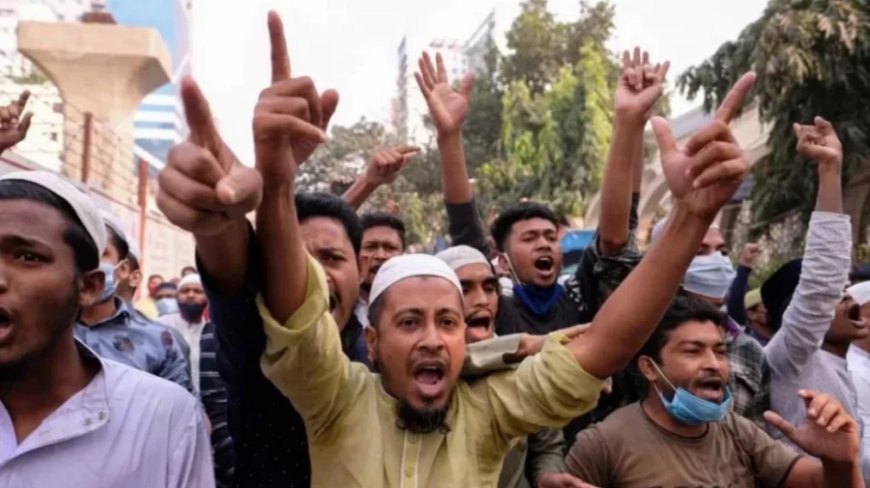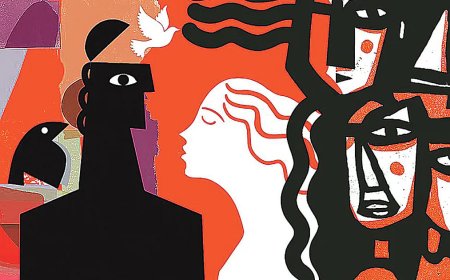Is the surge in militancy in Bangladesh a genuine threat or merely propaganda?
Religious fundamentalism can't be addressed through denial or dismissal.

Bangladesh, a Muslim-majority nation with over 90% of its population practicing Islam, has long been recognized for its religious tolerance. Historically, Bengali Muslims have coexisted peacefully with people of other faiths—mosques and temples often share courtyards, symbolizing generations of harmonious interfaith relations. The country’s Muslims are devout—committed to prayer, fasting, and deeply moved by religious sermons. At the same time, they embrace cultural life: music, theater, cinema, and traditional folk performances like jatra, where men and women freely interact, sometimes even dancing in response to female performers. Women actively participate in all spheres of life—working alongside men in fields and offices, excelling in education, sports, and public life.
Given such a vibrant and inclusive social fabric, the rise of Islamic fundamentalism—let alone militancy—once seemed implausible. Yet, signs of both have steadily emerged. Under the previous Awami League government led by Sheikh Hasina, hardline extremism was met with forceful crackdowns, leading to a period of relative calm.
However, in the aftermath of the July-August anti-government protests, concerns about a resurgence of militancy have resurfaced. Tulsi Gabbard, the newly appointed U.S. Intelligence Chief, voiced alarm over growing militant activity in Bangladesh. Shortly after, The New York Times published a report titled “As Bangladesh Reinvents Itself, Islamist Hard-liners See an Opening,” highlighting a clear uptick in religious extremism. The interim government dismissed these warnings as unfounded propaganda, claiming that extremism has never been tolerated and will continue to be stamped out decisively. Still, these developments demand a careful and realistic examination.
The interim government, led by a younger leadership backed by a figure they describe as their mentor, has labeled only those prosecuted by the “fascist Hasina regime” or those who opposed it as “patriots,” while others are cast as collaborators. Ironically, Islamist militant groups—once the primary targets of Hasina’s suppression—are now among those claiming credit for her ousting. Some have publicly admitted involvement in violence and sabotage, stating that without their efforts, the movement would have failed. Many of these factions have since advocated for transforming Bangladesh into an Islamic state, calling for a complete overhaul of the Constitution and erasure of the nation’s cultural and historical identity, heralding this as the dawn of a new era.
This so-called “new era,” as reflected in their public statements, leans toward a state grounded in Islamist ideology. During and after the uprising, city walls in Dhaka and beyond were covered with slogans, Arabic inscriptions, and flags reminiscent of Hizb ut-Tahrir and the Islamic State, indicating a troubling trend.
Can it truly be denied that these groups have received a level of protection or quiet encouragement? Allegations suggest that their rallies and public displays of jihadist imagery have faced little to no resistance, even as their rhetoric escalates. It is no surprise that the United States, the broader Western world, and neighboring countries increasingly view Bangladesh as a potential hotbed for jihadist activity.
Moreover, the interim government's actions have deepened political polarization. The national unity that briefly emerged during the movement has fractured, dividing the political landscape into two camps: liberal-leaning parties with broad public support and conservative or hardline factions. The former are now vilified as “fascist collaborators,” stripped of political and civil rights. This dangerous polarization threatens to plunge the nation into prolonged instability, economic deterioration, and a potential collapse of law and order—risks amplified by global geopolitical shifts. Nevertheless, the government appears intent on sidelining the liberal segment of the population.
Such a posture raises questions: is space being intentionally made for Islamist militants in the political arena?
Despite its public vows to crush extremism, the interim regime’s credibility is now under scrutiny. After all, it was these very groups—by their own claims—that helped usher it into power. Can the government be trusted to contain the very forces it may have once benefited from? If the international community comes to view Bangladesh as a fertile ground for extremism, the repercussions—both political and economic—could be severe.
What's Your Reaction?






















































































